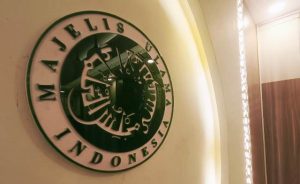 Michigan, 20 Sha’ban 1434/29 June 2013 (MINA) – After a contentious lawsuit that accused the restaurant chain of selling non-halal items advertised as halal, McDonald’s has yanked its Halal Chicken McNuggets and Halal McChicken sandwiches off the menu.
Michigan, 20 Sha’ban 1434/29 June 2013 (MINA) – After a contentious lawsuit that accused the restaurant chain of selling non-halal items advertised as halal, McDonald’s has yanked its Halal Chicken McNuggets and Halal McChicken sandwiches off the menu.
Previous, there have been only two McDonald’s restaurants in the U.S. that have offered halal food. Both were in East Dearborn, Mich., which has a sizable population of Arab-American Muslims.
“Those items have been discontinued as a result of our continued efforts to focus on our national core menu,” a spokesman for McDonald’s said Friday.
At one of the two restaurants, the Ford Road location, a sign in Arabic and English on its drive-through menu informs customers that halal items are no longer available, the Muslim Village quoted by Mi’raj News Agency (MINA) as reporting.
Also Read: UN Member States Renew Calls for Reform as Organization Marks 80th Anniversary
The decision to discontinue the products after a 12-year run drew a mixed reaction in Dearborn: Some were disappointed, while others said it was a good move because McDonald’s had problems before with selling halal food.
The removal of the halal items, which was done last month, comes after a lawsuit filed in 2011 alleging that the fast-food restaurant was selling non-halal chicken it claimed was halal.
Halal is the Muslim equivalent of kosher, requiring that meat be prepared according to Islamic guidelines, such as reciting a prayer while the animal is cut. In some cases, employees at the Ford Road location were mistakenly giving non-halal products to customers who asked for halal ones.
Kassem Dakhlallah, the attorney who filed the lawsuit, said Friday that the company’s decision to stop selling halal food is “disappointing.” He said that McDonald’s should have tried “to ensure that all products sold were halal as advertised.”
Also Read: Trump Warns Israel Could Lose All US Support Over West Bank Annexation
“But, if McDonald’s couldn’t guarantee that, “then ceasing to offer halal products was probably the best decision,” he said.
Majed Moughni of the company’s handling of halal food, said the decision by McDonald’s to end the sale of halal items “was the right thing to do.”
After pressure from attorneys with McDonald’s, Moughni’s free-speech rights were curtailed after Wayne County Judge Kathleen Macdonald clamped down on his Facebook page, which was critical of the company’s handling of the case. The judge later lifted her injunction against Moughni after free-speech advocates defended him.
“If you can’t get it right 100% of the time, then you’re doing a disservice to the community,” Moughni said. “Stop it if you can’t guarantee it.”
Also Read: Trump: Israel ‘Not Going to Do Anything with West Bank’ After Annexation Vote
McDonald’s, which has more than 14,000 restaurants in the U.S., started selling halal products for the first time in the country at its location on Michigan Avenue near Greenfield in September 2000. It followed with the McDonald’s on Ford Road east of Schaefer. In 2000, about 65% of sales of Chicken McNuggets at the Michigan Avenue location were for the halal version.
Although McDonald’s has discontinued selling halal products in the U.S., it still sells halal food in Muslim-majority countries such as Saudi Arabia.
McDonald’s settles legal case over false Halal products
Also Read: Mahmoud Khalil Accuses Trump Administration of Silencing Pro-Palestine Voices
McDonald’s and one of its franchise owners agreed to pay $700,000 to members of the Muslim community to settle allegations a Detroit-area restaurant falsely advertised its food as being prepared according to Islamic dietary law.
McDonald’s and Finley’s Management Co. agreed Friday to the tentative settlement, with that money to be shared by Dearborn Heights resident Ahmed Ahmed, a Detroit health clinic, the Arab American National Museum in Dearborn and lawyers.
The lawsuit alleged that Ahmed bought a chicken sandwich in September 2011 at a Dearborn McDonald’s but found it wasn’t halal _ meaning it didn’t meet Islamic requirements for preparing food. Islam forbids consumption of pork, and God’s name must be invoked before an animal providing meat for consumption is slaughtered.
Dakhlallah said there are only two McDonald’s in the United States that sell halal products and both are in Dearborn, which has one of the nation’s largest Arab and Muslim communities. Overall, the Detroit area is home to about 150,000 Muslims of many different ethnicities.
Also Read: Trump Confirms Gaza Ceasefire Still in Effect Despite Israeli Violations
The locations advertise that they exclusively sell halal Chicken McNuggets and McChicken sandwiches and they have to get those products from an approved halal provider, Dakhlallah said. He said there was no evidence of problems on the production side, but he alleges that the Dearborn location on Ford Road sold non-halal products when it ran out of halal.
Dakhlallah said he was approached by Ahmed, and they conducted an investigation. A letter sent to McDonald’s Corp. and Finley’s Management by Dakhlallah’s firm said Ahmed had “confirmed from a source familiar with the inventory” that the restaurant had sold non-halal food “on many occasions.”
After they received no response to the letter, Dakhlallah said, they filed a lawsuit in Wayne County Circuit Court in November 2011 as part of a class action.
The Associated Press left messages Monday afternoon for attorneys representing the corporation and the franchise.
Also Read: Massive ‘No Kings’ Protests Erupt Across 50 US States Against Trump’s Hardline Policies
In the settlement notice, Finley’s Management said it “has a carefully designed system for preparing and serving halal such that halal chicken products are labeled, stored, refrigerated, and cooked in halal-only areas.” The company added it trains its employees on preparing halal food and “requires strict adherence to the process.”
He said although Ahmed believes McDonald’s was negligent, there was no evidence that the chain set out to deceive customers.
“McDonald’s from the very beginning stepped up and took this case very seriously,” Dakhlallah said. “They made it clear they wanted to resolve this. They got ahead of the problem.”
The lawsuit covers anyone who bought the halal-advertised products from the Ford Road restaurant and another Dearborn McDonald’s with a different owner between September 2005 and last Friday. Since that would be impossible to determine, Dakhlallah said both sides agreed to provide money to community-based charities that benefit members of this group.
Also Read: Mass Layoffs Hit Federal Agencies Amid Trump’s Government Shutdown
The other location on Michigan Avenue wasn’t a defendant or a focus of the investigation, Dakhlallah said.
He said the final hearing will ultimately determine who gets what and how much, but roughly $275,000 is expected to go to the Huda Clinic, about $150,000 to the museum, $230,000 to attorneys and $20,000 to Ahmed.
Dakhlallah said he believes it’s the first lawsuit of its kind related to McDonald’s and halal food.
In 2002, McDonald’s agreed to donate $10 million to Hindu and other groups in the U.S. to settle lawsuits that accused the chain of mislabeling french fries and hash browns as vegetarian. The vegetable oil used to prepare the items had contained traces of beef for flavoring purposes. (T/P09/E1).
Also Read: Brazilian Activist Vows Gaza Aid Flotilla Will Continue Despite Ceasefire
Mi’raj News Agency (MINA).






















 Mina Indonesia
Mina Indonesia Mina Arabic
Mina Arabic